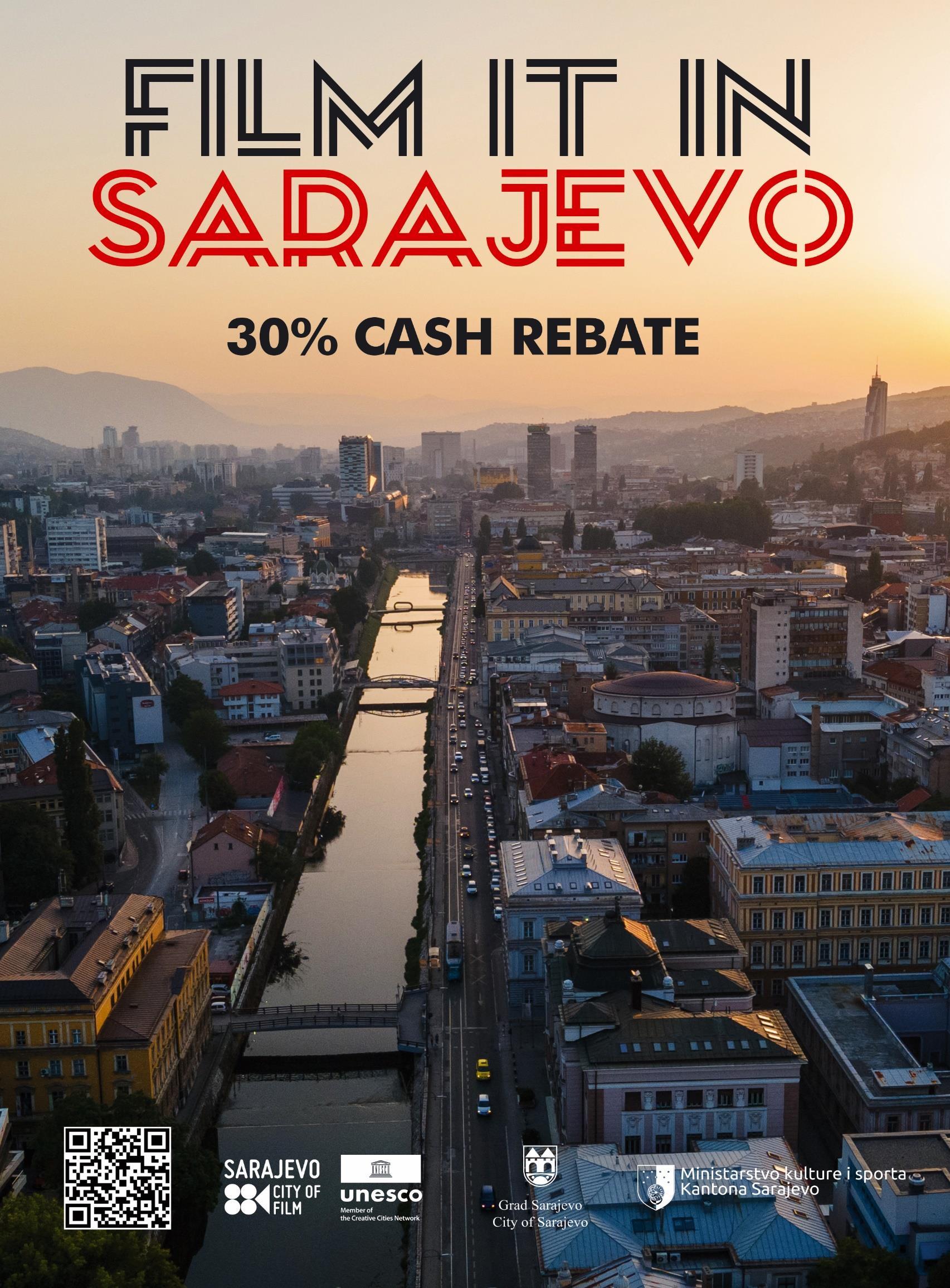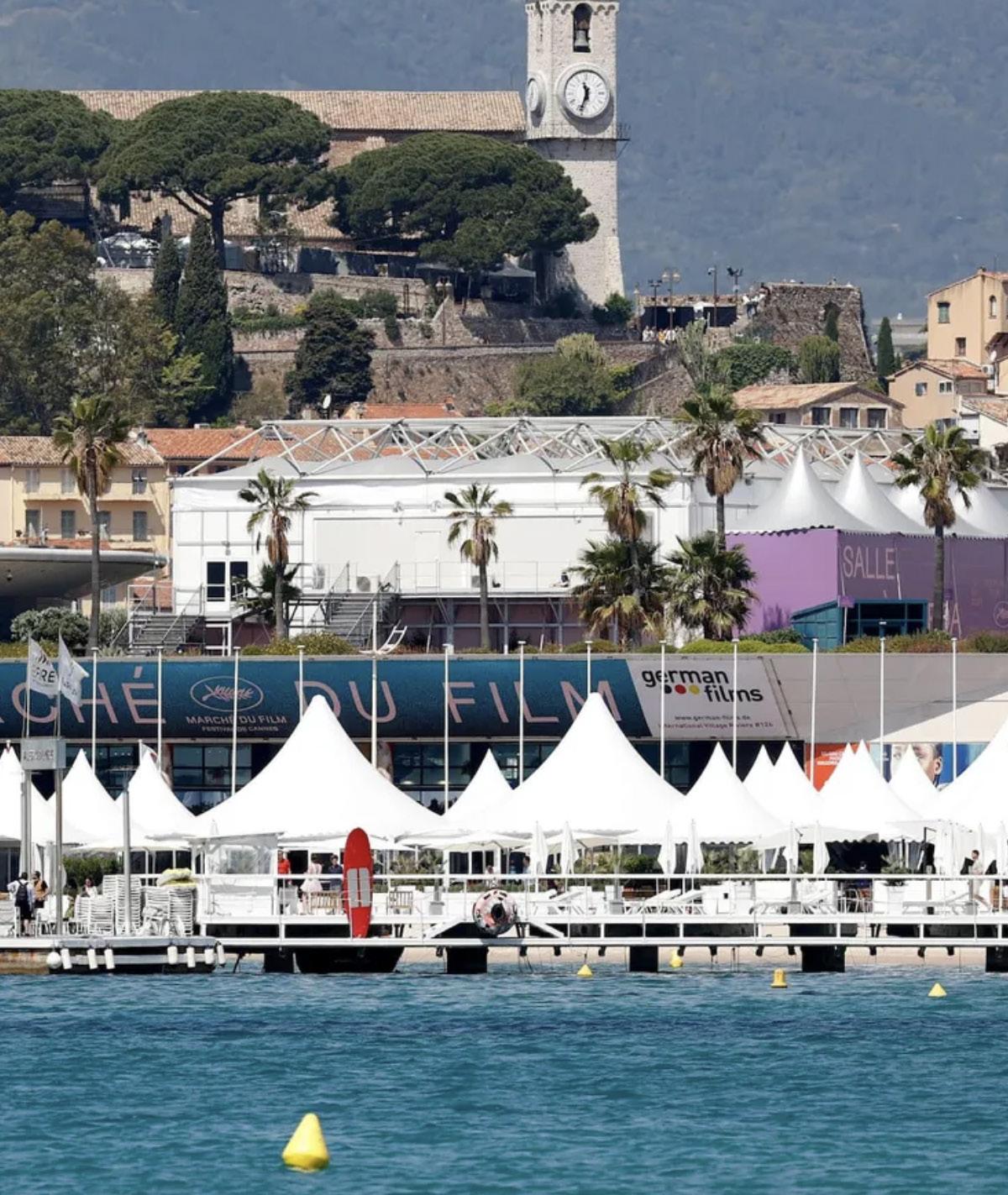
 photo courtesy Festival du Cannes
photo courtesy Festival du Cannes
day 2


 photo courtesy Festival du Cannes
photo courtesy Festival du Cannes
day 2


VERDICT: Maïwenn's Cannes opener is rich in irony and metatextual commentary, which compensates for the rather superficial treatment of a fascinating historical character.

Boyd van Hoeij, May 16, 2023

It’s rare that a single film so clearly gave birth to another but that’s reportedly the case for Cannes opener Jeanne du Barry, which Maïwenn was inspired to make after watching Sofia Coppola’s Marie Antoinette (2006). During her viewing, the actor-director was intrigued by the personality of du Barry, played in Coppola’s film by Asia Argento. In her own creation released 17 years later, this 18th-century rags-to-riches story is of course at the centre of the narrative, with the Countess played by Maïwenn herself in a typically self-assured, look-at-me performance that’s a perfect fit for a woman who came from nothing and used nothing more than her charm… Full Review


Weeks prior to the Marché du Film, its Executive Director, Guillaume Esmiol, sat down with The Film Verdict. His boyish smile and relaxed demeanor hide his extreme focus on the enormity of his role leading the world’s most important and largest film market. Esmiol brings an impressive background to the position which can strengthen the Marché future in a digital world.
Guillaume Esmiol has an engineer background (Master of Science
from Ecole des Mines de Saint Etienne, Engineer Diploma from the Technische Universität Berlin) and a specialization in media (Specialized Master from ESCP Business School). Between finance, technology, and marketing, Esmiol’s career has been fast and balanced. Holding several positions, he cut his teeth with TF1 Group as Digital Television Network Manager and then as Innovation Project
(Continues page 2)
ESMIOL INTERVIEW (Continued)
Manager got promoted as Head of B2B Partnerships and Content Acquisitions for MYTF1, and finally as Director of Open Innovation & New Business of the group. Fast forward, Esmiol held also several startup board positions before becoming CMO at WeFound, a startup studio. He joined the Marché in 2020 as Deputy Director with the mission to develop its activities. He became Co-Director in 2021 and Executive Director in 2022 of the Marché. He’s also the Director of Cinando, the film industry database.
TFV: First and foremost, thank you for sitting down with The Film Verdict weeks away from the industry’s largest film market – Marché du Film Now that you have taken the helm, Congratulations! And of course, good luck. Though you were CoExecutive Director, is it still
dauting to realize, knowing that it’s nearly time for the Cannes Market, that all the responsibility rests on your shoulders?
GE: I can’t deny that there is a mix of excitement and pressure, but I have been lucky to have had two years of transition with Jérôme Paillard [former director of the Marché du Film, NDLR]. I am also fortunate to have a very solid team, who have been there for years and know the Marché very well.
TFV: Because the Marché has always reflected the growth and changes of the industry, it has already gone through many years of industry growth. You are taking the leadership position at a rather interesting moment, while many look at your background as being a perfect choice. Formerly, you were the Director of Innovation at TF1 Group and have start-up
experience as Marketing Director for WeFound. How will you apply that expertise and experience to the Marché? And what are your short-term plans to embrace the changes of the industry and wider long-term goals?
GE: My primary goal is to reinforce our position as the leading international market by always improving our services to sales companies and buyers. I want to reinforce our initiatives dedicated to co-production and film financing. I also want to develop our programs on the future of the industry : tech and innovation, sustainability and diversity, and training programs for the new generation of talents and professionals.
TFV: Although there are thousands of independent film producers and films, the general perception is the majors in every company are getting larger and more dominant, leaving the smaller film companies behind. Have you seen a decline in Stand (?) attendance by smaller film companies?
GE: I’m not sure that they are more dominant than before but the Covid crisis was particularly hard for smaller companies. But this year, we will have more stands at the Marché du Film. Small and medium companies are coming back (in particular Asian companies).
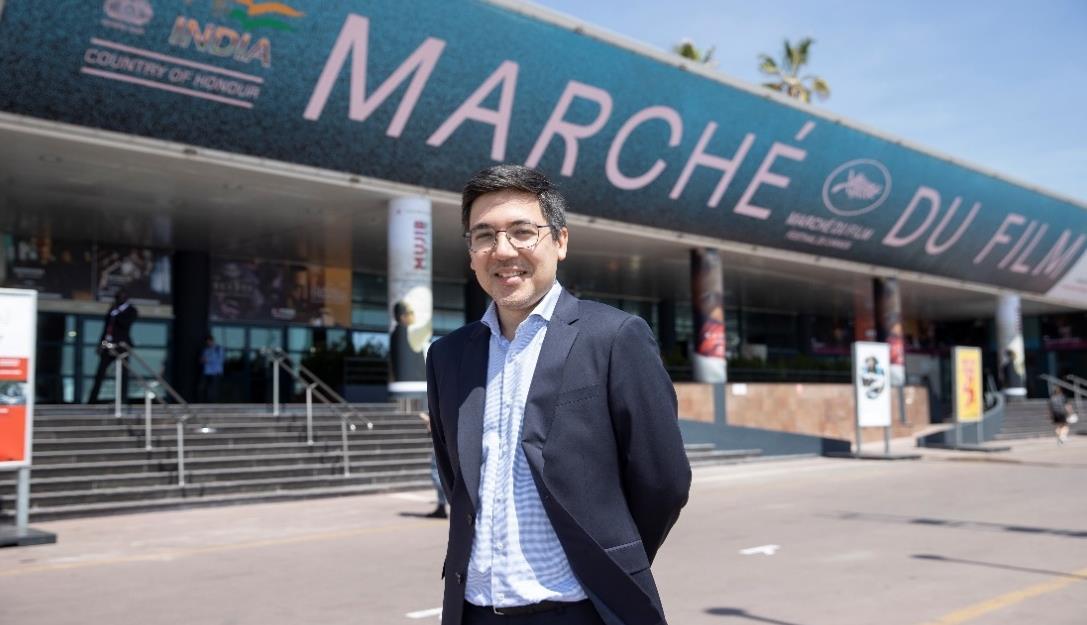 Full Interview
Full Interview


The General Delegate of the Semaine de la Critique talks about first films, French productions and her Cannes watchlist.
by Max BorgT
he Film Verdict: You took over the Cannes Critics Week as General Delegate in 2021, at a time of great turmoil for festivals and the film industry. How do you feel about this year’s edition?
Ava Cahen: I’m very happy. Our selection is a lively one, and it will hopefully speak to as large an audience as possible. I’m especially pleased because all the feature films in our program have secured theatrical distribution in France. That’s part of why we do it.

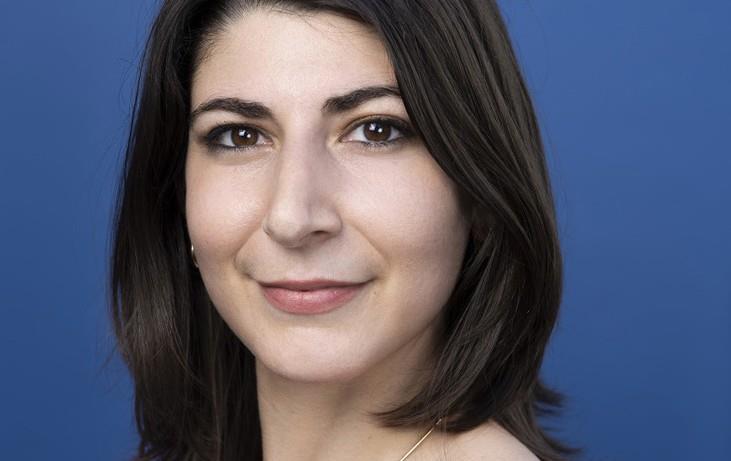
TFV: Aside from the South Korean entry Sleep, all the features in the program are French productions or coproductions. France appears to be very supportive of first-time directors, on an international level too.
AC: That is very true. The number of co-productions has
Increased in recent years, particularly in support of countries that may have suffered in terms of production during the pandemic. I’m thinking of titles like Tiger Stripes, which is an international co-production and hails from Malaysia. We hadn’t had any Malaysian submissions in the last few years.
TFV: That’s a genre film, and those have always had their place in the Semaine line-up, even as part of the competition. In a way, you’ve been redefining the notion of “festival films.”
AC: That’s always been part of the Semaine’s history because we don’t think of them as “Bmovies.” They have a nobility of their own and deserve the same spotlight as other films.
TFV: One unique aspect of the Semaine de la Critique is that, as the name suggests, the selection committee consists
Anatomy of Fall
entirely of film critics. What’s the difference between the critic’s mindset and the programmers?
AC: It’s a juggling act. We all watch the submissions together, from December to April, and the critical side emerges primarily in the discussions we have about the films. The programming mind comes into play when thinking about the big picture, how these films will exist side by side in the line-up. And it’s not just a matter of taste. You also have to go with your gut.
TFV: The festival’s Official Selection has quite a few first features this year, as does the Quinzaine. Was there more competition than usual between the different strands of the festival?

Full Interview, click here
Tiger Stripes

will be awarded the Carrosse d’Or by the SRF filmpakers. On Wed, May 17, he will be celebrated at the Theatre Croisette with a screening, a masterclass and an award ceremony. Cissé won the Cannes Jury prize in 1987 for Brightness, He is a festival favorite, with 14 awards at festivals as varied as Cannes, Carthage, Bergamo, British Film Institute,Valladolid and the Ouagadougou Pan African Film and TV Festival.

Born in Bamako in 1940 and raised in a Muslim family, Cissé was a passionate cinephile from childhood. He began his career as a film projectionist, later studying at the VGIK film school in Moscow before returning to Mali to work on newsreels for the country’s Ministry of Information. His searing 1975 feature debut, The Young Girl, was the first full-length film shot in his native language of Bambara, offering a fearless depiction of rape and powerlessness. It was banned by the authorities, and Cissé was jailed. That film was followed by The Porter in 1977, and The Wind in 1981. His renowned film, Brightness won
the Cannes Jury Prize in 1987, becoming the first African mover to be awarded at the festival. His film, Time was also selected for Cannes in 1995. A venerated and respected filmmaker, Cissé has also dedicated his career to supporting African filmmaking through initiatives such as the Union of West African Cinema and Audiovisual Designers, which he founded. He is also heavily involved in the development of an economically viable African audiovisual industry.
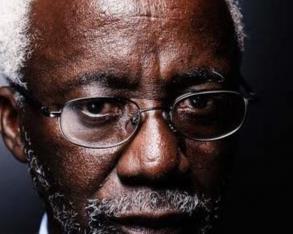
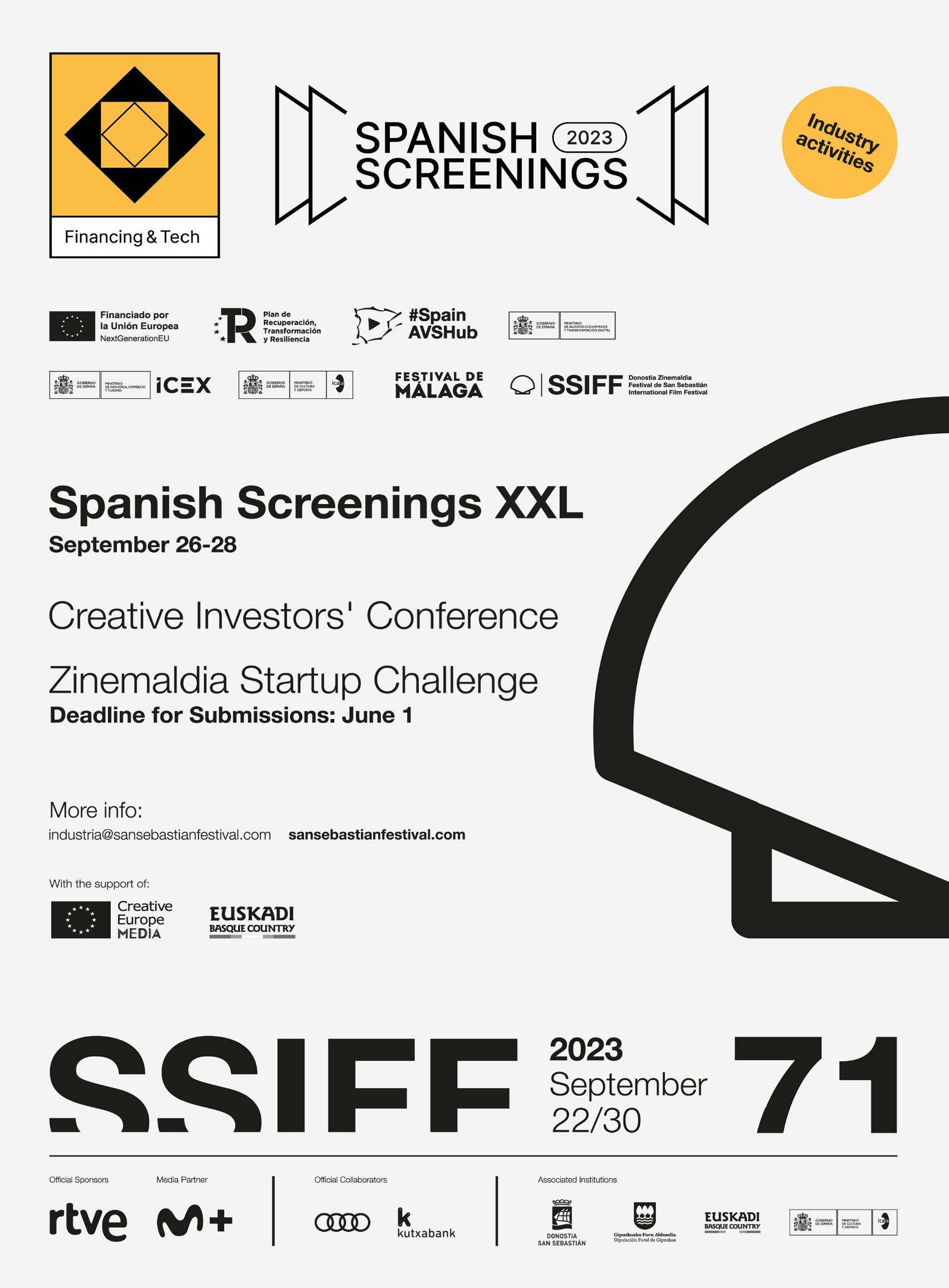
17 MARCH
19.00 MONSTER by KORE-EDA HIROKAZU
22.15 HOMECOMING by CATHERINE CORSINI
18 MARCH
08.30 MONSTER by KORE-EDA HIROKAZU
11.30 HOMECOMING By CATHERINE CORSINI
14.30 YOUTH (SPRING) by WANG BING
22.30 BLACK FLIES by JEAN-STÉPHANE SAUVAIRE
20 MARCH
8.30 THE ZONE OF INTEREST by JONATHAN GLAZER
11.00 FOUR DAUGHTERS) by KAOUTHER BEN HANIA
15.00 BANEL E ADAMA by RAMATA-TOULAYE SY
22.30 MAY DECEMBER by TODD HAYNES
Online ticket service is available to all accreditation holders. Access to the Festival screenings and those of the parallel sections (Directors’ Fortnight, La Semaine de la Critique, ACID and Cannes Cinéma) is only possible by booking a ticket via the online ticketing service, subject to availability. You can book a ticket for all the screenings in all the Festival’s venues and parallel sections.

19 MARCH
11.45 BLACK FLIES by JEAN-STÉPHANE SAUVAIRE
14.30 ABOUT DRY GRASSES by NURI BILGE CEYLAN

19.00 THE ZONE OF INTEREST by JONATHAN GLAZER
22.00 FOUR DAUGHTERS by KAOUTHER BEN HANIA

For each screening, the booking is available 4 days before. The exact time when you can have access to new screenings depends on the accreditation
TO ACCESS ONLINE TICKETING CLICK BELOW
The Valais Film Commission is an organization whose missions are:



To welcome, assist and support the production of audiovisual projects in the canton with a balanced approach towards the Commission’s cultural and economic interests.
Tristan Albrecht

Avenue de Tourbillon 11
1950 Sion Switzerland
Mobile : +41 77 447 07 20
Office : +41 27 327 36 41
https://valaisfilmcommission.ch/en/
To collaborate to promote the canton’s image through the production and creation of films
To develop the direct and indirect benefits connected to the film industry in Valais
To encourage the development of a local audiovisual industry and participate in expanding the pool of industry professionals

“Filming in Valais feels like home, or perhaps even better”
Let Me Go / Laissez-moi
Directed by Maxime Rappaz GoldenEgg Productions
Incarnation / Incarnatio
Directed by Aurélien Achache
Tangible Films
The Moon Rises / La lune se lève
Directed by Gaspard Vignon Marmotte productions
The Hunter’s Son / Le fils du chasseur
Directed by Juliette Riccaboni AKKA Films
Savages / Sauvages
Directed by Claude Barras Nadasdy Films
Policeman / Tschugger
Directed by David Constantin Shining Production
Threatened Species / Espèce menacée

Directed by Bruno Deville Rita Productions
Laissez-moi, produced by GoldenEgg Productions, is the first feature film by Geneva-based Maxime Rappaz. It is also the first project supported by the Valais Film Commission and will be unveiled as part of the Cannes ACID program. The film tells the story of Claudine, a woman who entrusts her disabled son to a neighbour and goes to a mountain hotel to meet men passing through. When one of them decides to extend his stay for her, Claudine’s daily life is disrupted and she finds herself dreaming of another life. Laissez-moi will be part of the parallel section organised by ACID (Association du cinéma in-dépendant pour sa diffusion) at this year’s Cannes Film Festival
The Valais Film Commission offers 2 types of funding for audiovisual productions planning to film in the canton of Valais:
Reimbursement of eligible expenses and salaries
• Fictional feature film, animation, or series
• In principle, at least 5 days of filming in Valais

• A minimum of CHF 100,000 of eligible expenditure in Valais
• Ad hoc grants
• Documentary, short film, reality Television
Up to 35% cash rebate
“The indoor shooting of the animation film Sauvage, directed by the academy award nominee Claude Barras is a great opportunity for us. It shows that we have more to offer than only our snow, cheese, chocolate cheese, chocolate and mountains”
Italian Screens will be in Pretoria, Johannesburg, and Cape Town this month thanks to Paolo Cuculi, Italy’s Ambassador to South Africa, who says that the event will contribute to strengthening the cultural ties between his country and South Africa. Here Cuculi, whose diplomatic career took off in 1992, tells The Film Verdict about what he has learned in dealing with the South African film business and how he became in-volved with Italian Screens in the first place.
The Film Verdict: Mr. Ambassador, thank you for taking the time to talk to us. You have greatly contributed to the organization of the Italian Screens event in South Africa. How long have you been there?
Paolo Cuculi: Last month I celebrated my fourth year as Ambassador of Italy to South Africa, with accreditation also to Lesotho, Namibia, Madagascar, and Mauritius.

TFV: Which other countries have you been stationed in during your career as a diplomat?
PC: After joining Italy’s Ministry of Foreign Affairs in 1992, I served in the Sudan (from 1994 to 1997), in
Thailand (from 1997 to 2000), at the Italian Permanent Missions to the United Nations in Geneva (from 2000 to 2002, and from 2010 to 2014) and in New York (from 2006 to 2010).
TFV: What would you say are some of the impressive things that you have learned about the South African film business while working on the Italian Screens project?
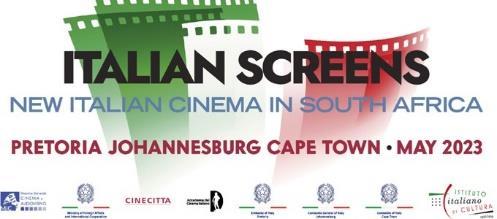
PC: South Africa is an ideal destination for making movies because of its majestic natural scenery and the very high creativity of its national talents.
For this reason, several international studios and streaming plat- forms, (including Netflix), chose to invest in South Africa and brought here the sets of well-known films and series. I also learned that in 2003 Italy and South Africa signed an agreement for the co-production of films and documentaries. The famous “Hotel Rwanda” was one of the movies coproduced in 2004. It is time to enhance such partnership.
For Full Interview, click here
Led by Roberto Stabile, Italian Screens was launched jointly by Italy’s Ministry of Foreign Affairs: Cinecittà for the Directorate General for Cinema and Audiovisual of the Ministry of Culture, and the Academy of Italian Cinema and David di Donatello Awards, the Italian premier film awards that show-case the best of Italy’s film production selected from movies nominated for the latest edition of David di Donatello Awards in major cities around the world.
The goal of Italian Screens is to introduce international audiences to Italian films, filmmakers, and actors, while at the same time creating opportunities for international co productions by showcasing what the Italian film industry has to offer by way of skills, expertise, and financial incentives. Events held by Italian Screens were successfully held last year in Atlanta, Bangkok, Bangalore, Berlin, Calcutta, Los Angeles, Miami, Mumbai, New Delhi, and Sao Paulo; they continue on in 2023 with Mexico, South Africa and other major countries across the globe.
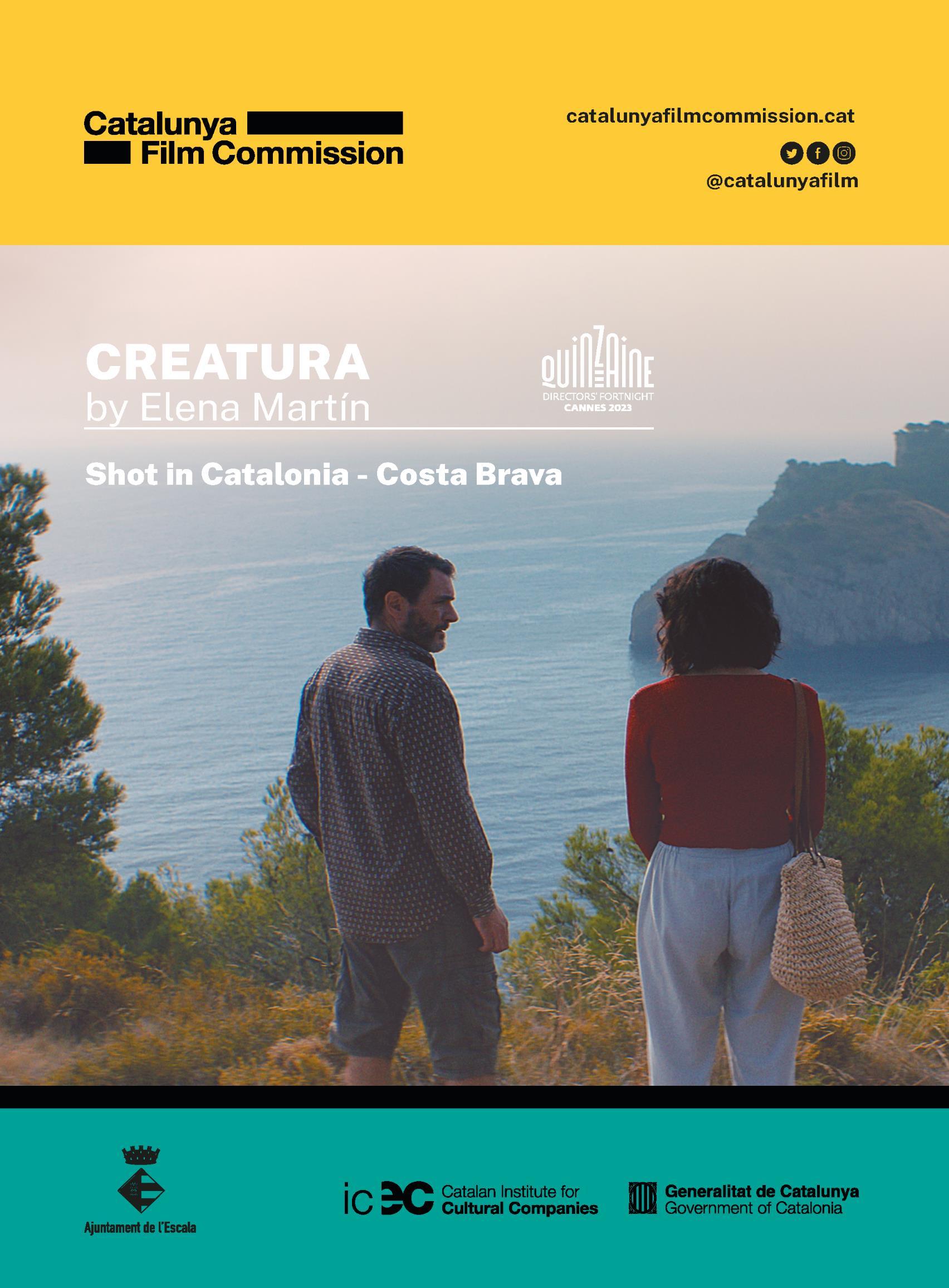
VERDICT: Director Zhang Lu’s gentle, impressionistic story set in historic old Beijing is a rambling account of complicated family ties and individual loneliness.

Full Review
VERDICT: Intriguingly ambitious attempt to do a nightclub version of a classic Henry James story winds up being more tired than wired.
Full Review
Every year during the Marché du Film, Cannes Docs offers a dedicated venue and tailored program of events for all feature documentary film professionals – filmmakers and industry decisionmakers alike. At the heart of the world’s number1 film festival and market, Cannes Docs reaffirms the fundamental place and role of the documentary genre, and works at ever-strengthening its organic integration within the global cinema industry. The goals and philosophy of the programme are to be as useful, relevant and welcoming as possible to documentary. May 18 Workshops and Sessions include:
and beef up your current projects, talk festival & distribution strategy, expand your professional connections and sharpen your global knowledge of the international marketplace
Workshop: Weaving Together Your First Feature
02:30 - 03:30 PDT
How do you get started on your first feature, if you’ve never made a film before? Yeelen Cohen & Kira Simon-Kennedy will share their experiences embarking on multi-year DIY documentary odysseys across continents.


Speed Meetings: One-on-One Consultations

06:30 - 07:45 PDT
Sign up for 15 minutes long oneon-one consultations with one of our doc industry experts. Benefit from their precious feedback and invaluable experience to refine
Networking Event: Group Presentations 08:1509:00 PDT
Come meet a variety of documentary film professionals for an informal discussion about their activity and about your own projects, alongside a small group of fellow filmmakers/ producers. Grab the opportunity to expand your network and make new contacts. Please take note of the participating industry professionals and their specific area of expertise so as to make this meeting relevant and useful for all.

DOK Leipzig is pleased to welcome three new colleagues to the festival team who will contribute varied perspectives to the festival work.Victoria Leshchenko (Coordinator Documentary Film Competitions) and Jana Kraft (Coordinator Animated Film Competitions) are joining the programme department effective immediately. At DOK Industry, Guevara Namer will oversee the DOKCo-Pro Market and the DOK Short n’ Sweet short film pitch as project coordinator.

DOK Leipzig takes place Oct. 8-15

For more than twenty years, theSarajevo Film Festival’s industry section CineLink Industry Days continues its mission to develop, support and present the most promising projects from the region in various development stages and formats.
Continuing in that spirit, CineLink Industry Days is honored to announce a new impact award CineLink Impact Award presented by Think-Film Impact Production. The purpose of the Award is to provide support in developing a comprehensive impact campaign for a project in post-production phase participating in the CineLink Work-in-Progress or Docu Rough Cut Boutique. The eligibility of a project for the Award will be determined by the
CineLink team. The Award comprises of in-kind consultation services worth €20,000 for the impact campaign.
CineLink Work in Progress chooses post-production projects to showcase to exclusive guests at the Sarajevo Film Festival, including international sales agents, top festival programmers, distributors, public fund representatives, and post-production houses.
The winner will be selected by CineLink Impact Jury., whose members are: Amy Shepherd, Rory Thost, and Faridah Gbadamosi. Amy Shepherd is the Chief Operating Officer at Think- Film Impact Production, Rory Thost is the Director of Documentary at Participant, Faridah Gbadamosi is a Senior Programmer at Tribeca Enterprises, director of Distribution at Open Your Eyes and Think MF.
Sarajevo takes place Aug 11 -18
